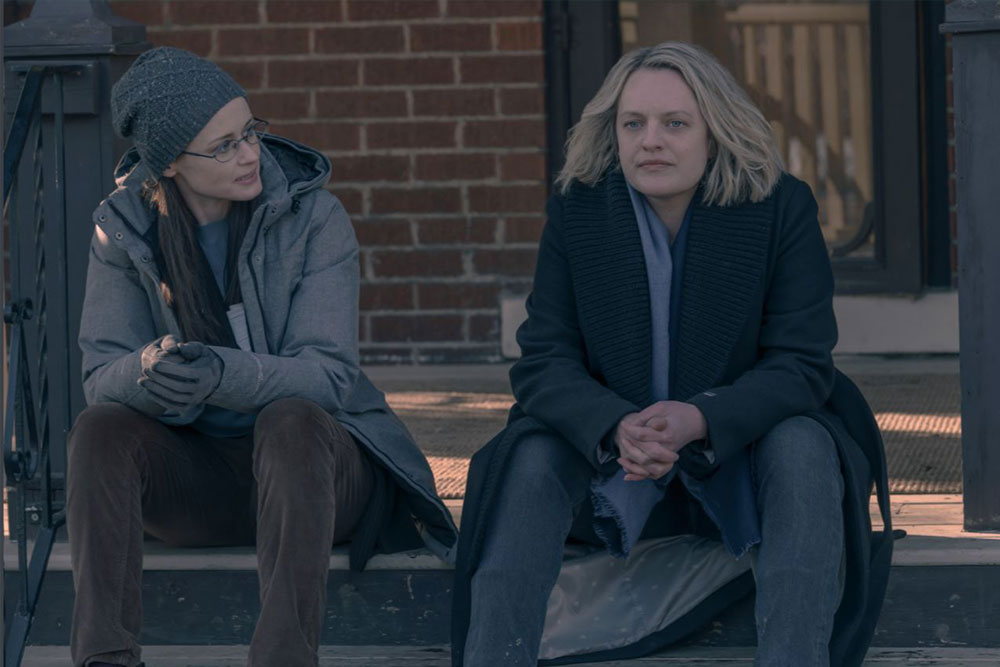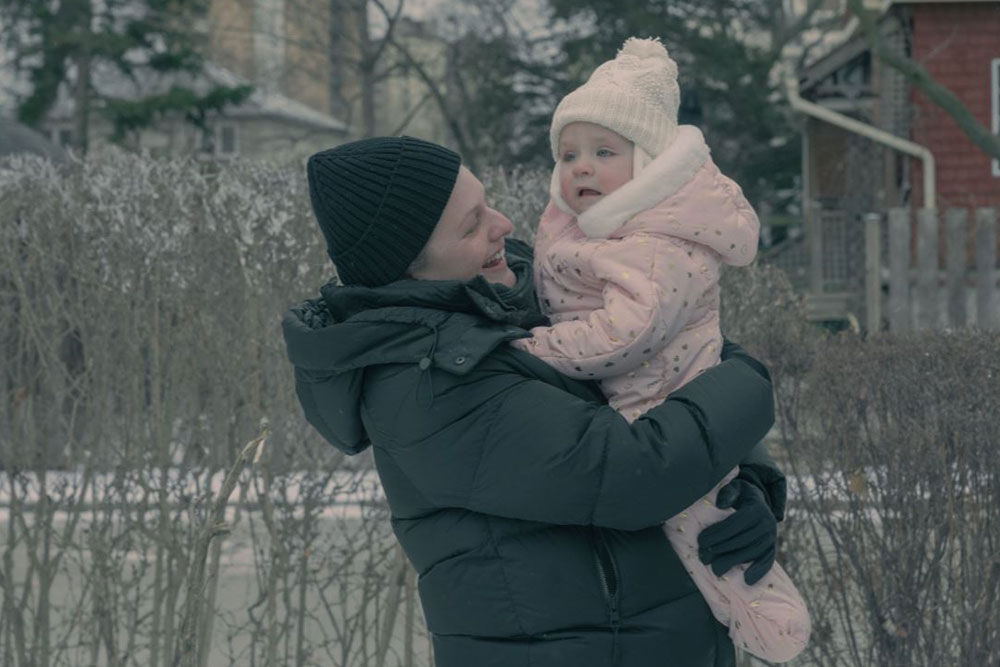*This article contains heavy spoilers for all seasons
Anybody who’s heard anything about The Handmaid’s Tale knows for a fact that you cannot watch any season of this show without gearing up for what looks like an endless cycle of trauma. It’s not your feel-good binge watch for the weekend, nor is it the kind of show you’ll pick up for a girls’ night out (or a virtual night-in during the pandemic). Before you pick up any season of this show—as you must, because it’s quite worth it—you have to steel your resolve to sit through hours of a story that puts women like you and me through some of the most harrowing, horrifying, and visibly dehumanising events imaginable.
Women, women everywhere…not one in total control
Based on Margaret Atwood’s book by the same name (at least the first season is), the show traces the story of a Handmaid—one of the few fertile women remaining on planet Earth—named Offred/June (played by Elizabeth Moss), living in the state of Gilead (erstwhile United States of America). It is through Offred’s eyes that you learn about the almost Biblical hierarchy women in Gilead survive in: the Commander’s Wives, the Aunts, the Marthas, the Handmaids, the Econowives, the Unwomen, and the Jezebels, all have designated roles in the state, but none have any real power over themselves.

Dystopian and disturbing, the lives of all these women portray how, even within a system where all the power lies with men, women can be each other’s worst enemy or best friend. No character is black or white. You cannot help but sympathise with Serena Joy Waterford’s (played by Yvonne Strahovski) vulnerability at times, even though you are more likely to be constantly repulsed by her fanaticism, cruelty, and willingness to give up her own agency so completely in the face of men and their toxic masculinity. Aunt Lydia (Ann Dowd) is no doubt a true convert to the fanatical and oppressive cause of Gilead—an agent who beats and manipulates free will, self-esteem, and any sense of human rights out of the Handmaids’ minds, until they are mere puppets, ready to be raped every month by the Commanders so that a new generation of children can enter the world. But somewhere, deep down, you also wonder what sort of dehumanising brainwashing this woman herself must have gone through to become this monster?
There’s no escaping your past
It’s the spell of this strange Stockholm syndrome that Offred and a few Handmaids, Marthas, and even Wives like Mrs Keyes, are shown to break through in the show. Their goal is to escape Gilead and the constant horrors they have to face, and most characters in the show are seen to somehow make their way to Canada and seek refuge with the US government in exile. Many critics of the show would tell you that after the first season, this goal seems to have meandered into a stalemate nobody was going to keep watching for long. After all, the second and third seasons were all about a vicious circle of “Offred escapes-Offred is caught”. On the other hand, those like Emily (Alexis Bledel) and Moira (Samira Wiley), who have managed to escape to Canada, seem to want nothing more than to forget their past and move on.

The fourth season of The Handmaid’s Tale flips this all on its head, breaking the monotony that many loyal viewers experienced. Once Offred actually enters Canada and takes back the mantle of June Osborn, she tears the façade apart. When you have been through trauma like these women have, can you ever, truly, achieve normalcy? Is that a lie we’re telling ourselves? One simple conversation puts the anger June, the many women on this show—and the millions of women in real life—feel, into perspective.
“Moira: Anger is a valid emotion. It’s necessary, important even, to heal. But we can’t live there.
June: Why not?
Moira: June…
June: Why does healing have to be the only goal? Why can’t we be as furious as we feel? Don’t we have that right?”
The rage that drives June to seek not only justice (can there be any true justice for systemic discrimination, oppression, and rape, anyways?) but vengeance and retribution, takes over from here. The fact is, we can all learn to cope with or live with our trauma, but there’s no turning back time to undo the past. You cannot escape it, and trying to rewrite it won’t actually change your lived experiences. Experiences that break you may take a lifetime to heal, but it’s natural for someone in this position to feel like seeking vengeance can help this process along. Whether retribution actually achieves anything, is another story. This trope has been especially explored in works of fiction revolving female characters, including myths and legends from all over the world, novels, and even movies like Kill Bill.
Rage, retribution, and righting a wrong?
So, when you see June confronting the Waterfords during their trial in Canada, you feel a sense of rage and righteous retribution. And the biggest pay-off comes in the most spectacular way indeed. Throughout the first three seasons, you see how the authorities in Gilead use hangings by the wall as a way to instil fear and mute obedience among their subjects, especially the Handmaids. You witness how making Handmaids stone or beat rebels to death is a cunning method of trapping them, psychologically, within the structure of the state’s system.

And then, at the end of season four, you witness the ex-Handmaids, led by June, do the same to Fred Waterford (Joseph Fiennes). They beat him to death, hang his corpse by a wall in No Man’s Land, and paint the wall with the Latin words, ‘Nolite te bastardes carborundorum’. “Don’t let the bastards grind you down.”
Yes, you do get a sense of justice and righteous retribution when you watch this amazing plot twist. But at the same time, you realise that there’s no escaping Gilead and what it’s done to these women who have apparently made their escape to luxurious Canada. As June cradles her child, Nichole, while still covered in Waterford’s blood, you realise that no matter how righteous vengeance may seem, it can turn anyone into a monster capable of beating someone to death and hanging them as a symbol to fear—even if they are the hero (or is she the antihero?) you’ve loved for four seasons.
And perhaps, that’s precisely the reason why you must watch The Handmaid’s Tale. Not only will it burst any bubble you’re falsely choosing to live in, but also make you realise that being human, and holding on to humanity, can be the messiest of affairs.